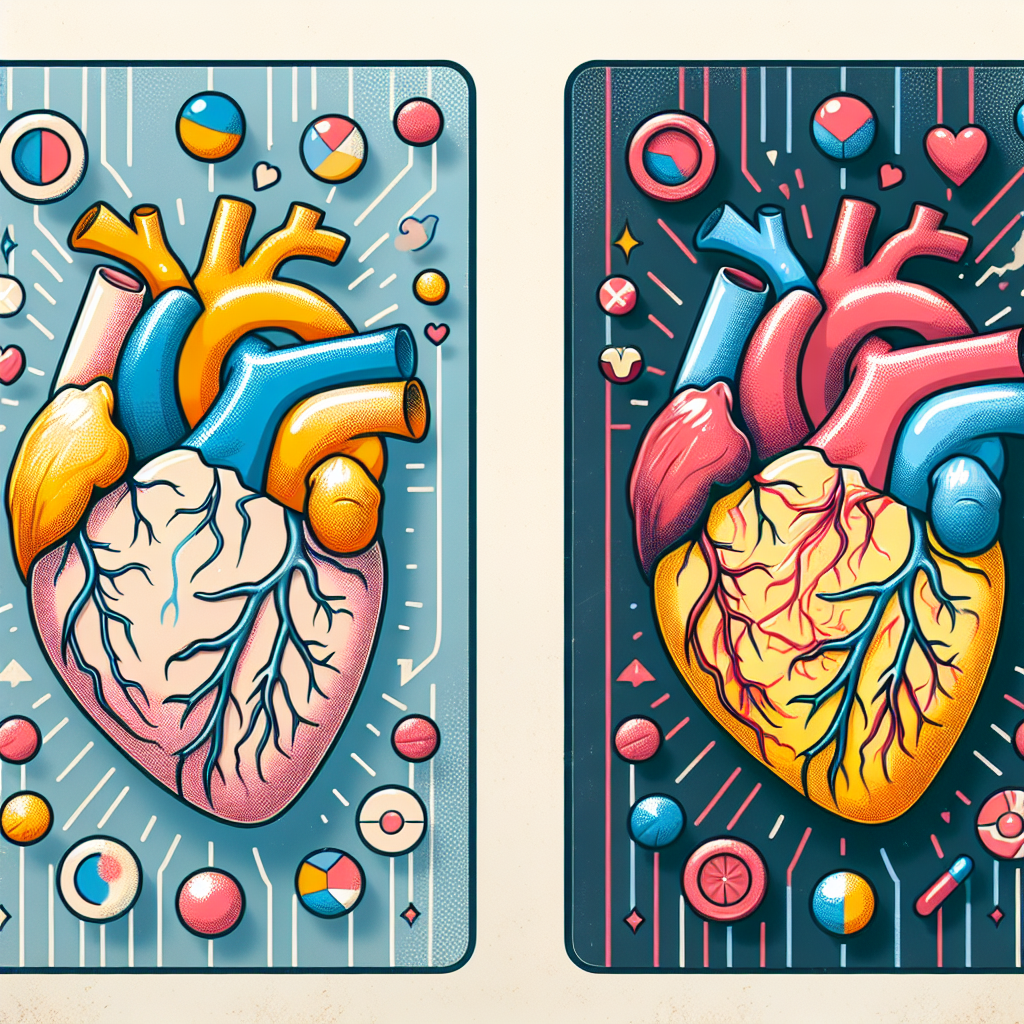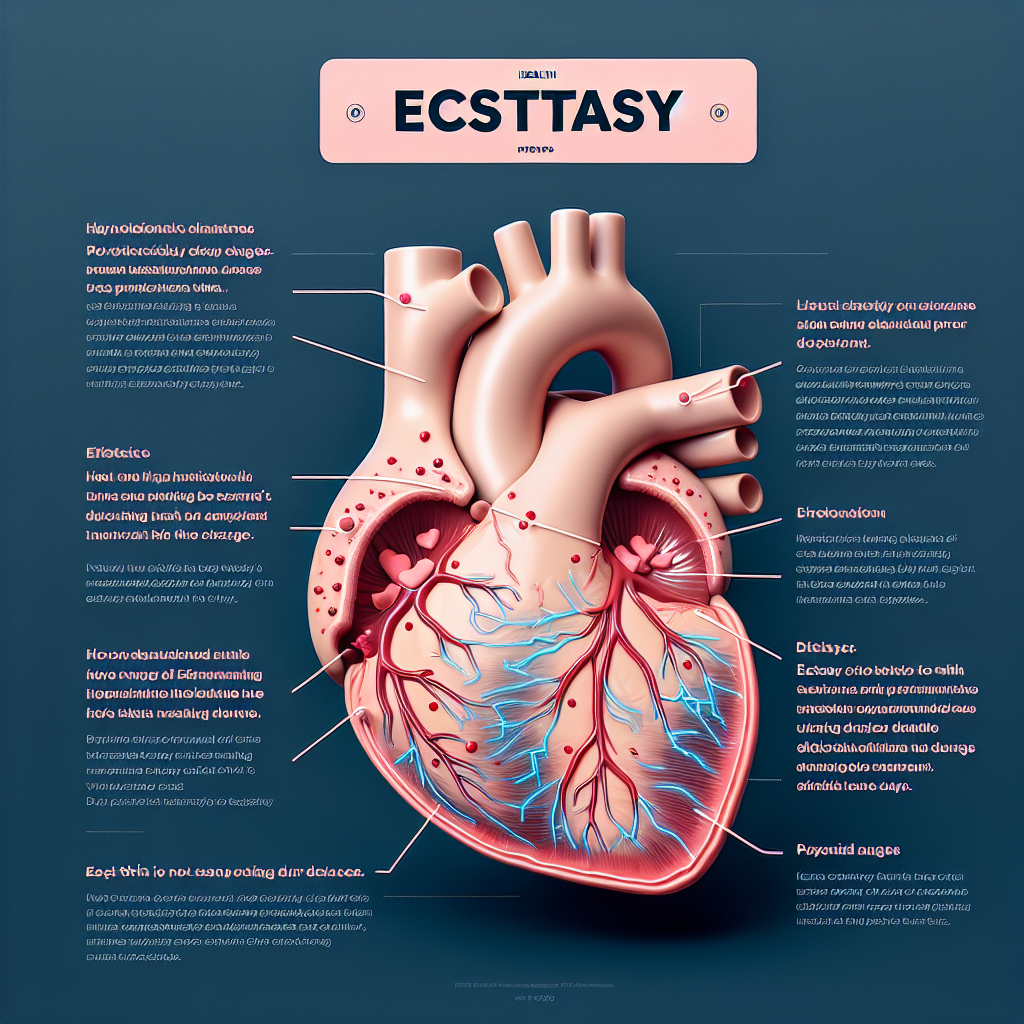-
Table of Contents

“Ecstasy: Elevating Risks, Straining Hearts.”
Introduction
Ecstasy, also known as MDMA (3,4-methylenedioxymethamphetamine), is a synthetic drug that alters mood and perception. Its use can have significant effects on the cardiovascular system, including the heart. When consumed, ecstasy increases the release of neurotransmitters such as serotonin, dopamine, and norepinephrine, which can lead to elevated heart rate and blood pressure. These changes can strain the heart, potentially leading to arrhythmias, or irregular heartbeats, and in severe cases, can cause heart attacks or heart failure. Chronic use of ecstasy can also result in long-term cardiovascular issues, including persistent hypertension and damage to the heart muscle. The stimulant properties of the drug, combined with its potential to cause dehydration and hyperthermia, further exacerbate these risks, making ecstasy use particularly dangerous for individuals with pre-existing heart conditions.
The Impact Of Ecstasy Use On Cardiovascular Health
Ecstasy, also known as MDMA, is a popular recreational drug often associated with the vibrant nightlife and rave culture. While its euphoric effects and ability to enhance sensory experiences make it appealing to many, it is crucial to understand the potential risks it poses to cardiovascular health. The impact of ecstasy use on the heart is a subject of growing concern among medical professionals and researchers alike. By shedding light on these effects, we can inspire informed decisions and promote healthier lifestyles.
To begin with, ecstasy exerts its influence on the cardiovascular system primarily through the release of neurotransmitters such as serotonin, dopamine, and norepinephrine. These chemicals play a significant role in regulating mood, energy levels, and heart function. When ecstasy is consumed, it causes a surge in these neurotransmitters, leading to increased heart rate and blood pressure. This heightened state of arousal can place undue stress on the heart, especially in individuals with pre-existing cardiovascular conditions.
Moreover, the stimulant properties of ecstasy can lead to vasoconstriction, which is the narrowing of blood vessels. This constriction can reduce blood flow to vital organs, including the heart, and increase the risk of ischemia, a condition characterized by insufficient blood supply. Over time, repeated use of ecstasy can contribute to the development of chronic hypertension, a major risk factor for heart disease and stroke. It is essential to recognize that even occasional use can have cumulative effects, potentially leading to long-term cardiovascular complications.
In addition to these immediate effects, ecstasy use has been linked to structural changes in the heart. Studies have shown that chronic use can result in cardiac fibrosis, a condition where the heart tissue becomes thickened and scarred. This scarring can impair the heart’s ability to pump blood efficiently, leading to heart failure in severe cases. Furthermore, ecstasy can disrupt the normal electrical activity of the heart, increasing the risk of arrhythmias, or irregular heartbeats. These arrhythmias can be life-threatening, particularly if they lead to sudden cardiac arrest.
It is also important to consider the indirect effects of ecstasy use on cardiovascular health. The drug’s ability to enhance physical and emotional experiences often leads to prolonged periods of intense physical activity, such as dancing for hours on end. This excessive exertion, combined with dehydration and overheating, can further strain the heart and exacerbate the risk of cardiovascular events. Additionally, the use of other substances, such as alcohol or stimulants, in conjunction with ecstasy can amplify these risks, creating a dangerous cocktail for the heart.
Despite these alarming findings, it is never too late to make positive changes. By raising awareness about the cardiovascular risks associated with ecstasy use, we can encourage individuals to make informed choices and seek healthier alternatives for recreation and stress relief. Engaging in regular physical activity, maintaining a balanced diet, and managing stress through mindfulness practices are all effective ways to support cardiovascular health. For those who have used ecstasy in the past, seeking medical advice and undergoing regular cardiovascular check-ups can help detect and address any potential issues early on.
In conclusion, while ecstasy may offer temporary euphoria, its impact on cardiovascular health is a serious concern that cannot be overlooked. By understanding the risks and making conscious choices, we can protect our hearts and inspire others to prioritize their well-being. Through education and awareness, we can foster a culture of health and resilience, ensuring that the heart remains strong and vibrant for years to come.
Long-Term Heart Risks Associated With Ecstasy Consumption
Ecstasy, also known as MDMA, is a popular recreational drug often associated with the vibrant nightlife and rave culture. While its immediate effects, such as heightened sensory perception and euphoria, are well-documented, the long-term heart risks associated with ecstasy consumption are less frequently discussed. Understanding these risks is crucial for making informed decisions about drug use and safeguarding one’s health.
One of the primary concerns with ecstasy use is its impact on the cardiovascular system. When consumed, MDMA triggers the release of large amounts of serotonin, dopamine, and norepinephrine in the brain. This surge in neurotransmitters not only affects mood and perception but also has significant implications for the heart. The increased levels of norepinephrine, in particular, can lead to elevated heart rates and blood pressure. Over time, these acute cardiovascular responses can contribute to more severe long-term heart issues.
Chronic use of ecstasy has been linked to persistent changes in heart function. For instance, repeated exposure to the drug can lead to the development of arrhythmias, which are irregular heartbeats that can be life-threatening if not properly managed. Additionally, the strain placed on the heart from consistently elevated blood pressure can result in hypertrophy, a condition where the heart muscle thickens and becomes less efficient at pumping blood. This can eventually lead to heart failure, a serious condition where the heart is unable to meet the body’s demands for blood and oxygen.
Moreover, ecstasy use has been associated with an increased risk of developing atherosclerosis, a condition characterized by the buildup of fatty deposits in the arteries. This buildup can restrict blood flow and increase the likelihood of heart attacks and strokes. The inflammatory response triggered by MDMA can exacerbate this process, further contributing to the deterioration of cardiovascular health.
It is also important to consider the indirect effects of ecstasy on the heart. The drug often leads to hyperthermia, or elevated body temperature, which can place additional stress on the cardiovascular system. Dehydration, another common consequence of ecstasy use, can thicken the blood and make it more difficult for the heart to pump effectively. These factors, combined with the direct effects of the drug, create a perfect storm for long-term heart damage.
Despite these risks, it is essential to approach the topic with a sense of hope and empowerment. Knowledge is a powerful tool, and understanding the potential dangers of ecstasy use can inspire individuals to make healthier choices. For those who have used ecstasy in the past, it is never too late to take steps towards improving heart health. Regular exercise, a balanced diet, and routine medical check-ups can help mitigate some of the damage and promote overall well-being.
Furthermore, raising awareness about the long-term heart risks associated with ecstasy consumption can lead to more informed public health policies and support systems. By fostering a culture of education and prevention, we can reduce the prevalence of drug-related heart issues and encourage healthier lifestyles.
In conclusion, while the allure of ecstasy may be strong, it is crucial to recognize the long-term heart risks associated with its use. By understanding these dangers and taking proactive steps to protect cardiovascular health, individuals can make informed decisions that prioritize their well-being. Through education, awareness, and a commitment to healthy living, we can inspire positive change and reduce the impact of ecstasy on heart health.
Q&A
1. **Question:** How does ecstasy use impact heart rate?
**Answer:** Ecstasy use can significantly increase heart rate, leading to tachycardia, which is an abnormally rapid heart rate that can strain the heart and increase the risk of cardiovascular complications.
2. **Question:** What are the potential long-term effects of ecstasy use on the heart?
**Answer:** Long-term ecstasy use can lead to chronic cardiovascular issues such as hypertension (high blood pressure), arrhythmias (irregular heartbeats), and an increased risk of heart disease due to the strain and damage caused to the heart over time.
Conclusion
Ecstasy use can have significant adverse effects on the heart, including increased heart rate, elevated blood pressure, and potential for arrhythmias. Chronic use may lead to long-term cardiovascular issues such as heart disease and cardiomyopathy. The stimulant properties of ecstasy can strain the heart, increasing the risk of heart attack and other serious cardiovascular events.



